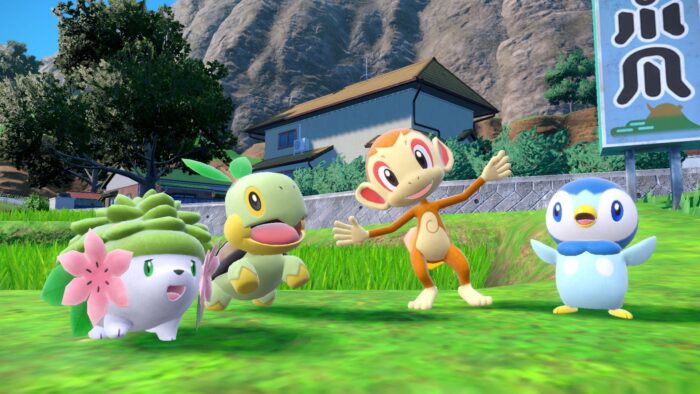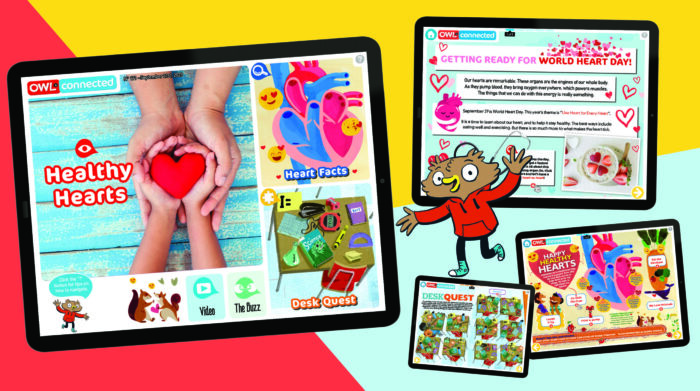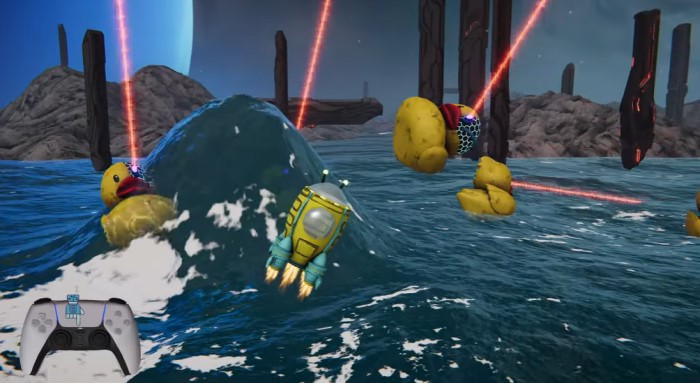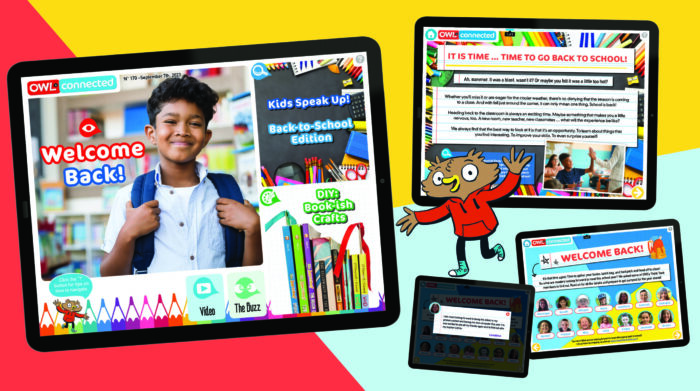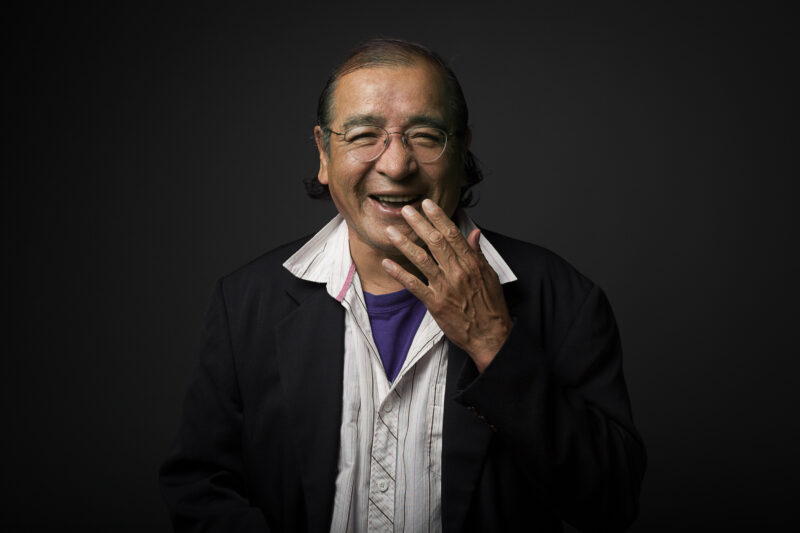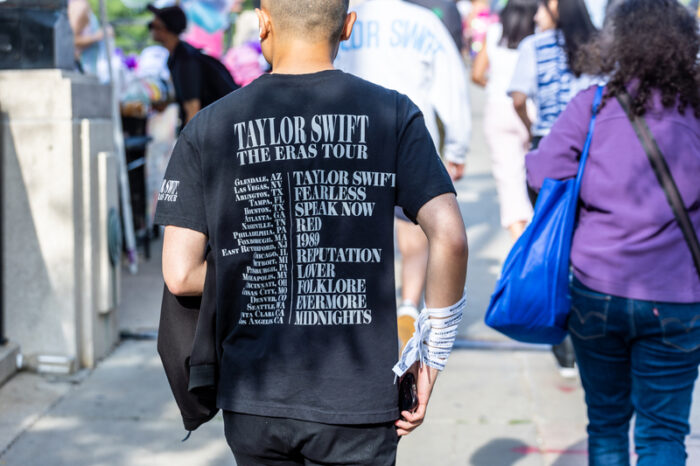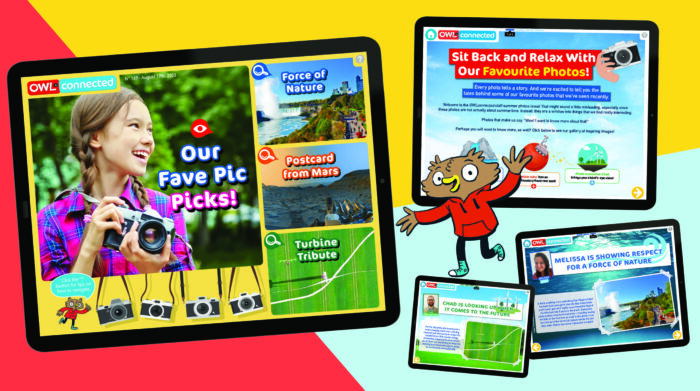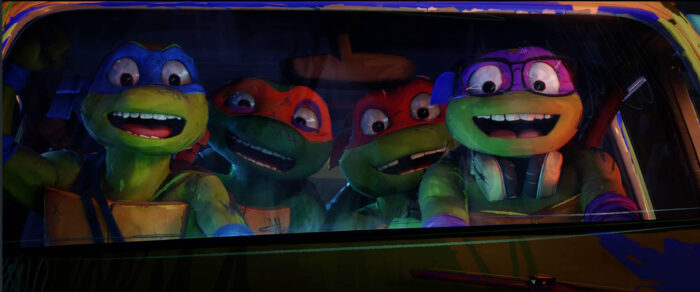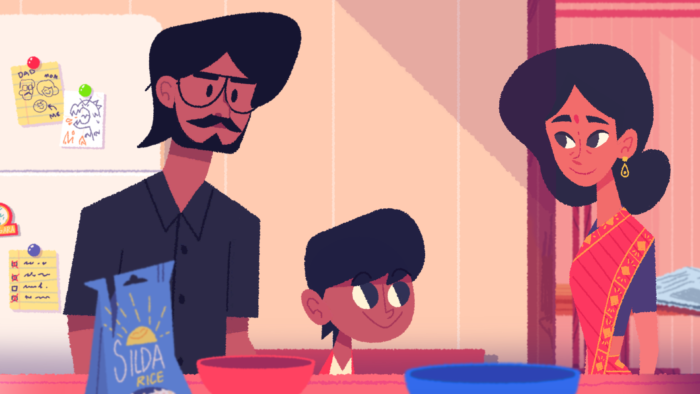Have you ever felt intimidated by a project that you still really wanted to try?
Brandon Mitchell has. Today he is a very experienced, very accomplished author and illustrator. In the early 2000s, he broke new ground for Indigenous comics with his Sacred Circles series. And in 2019, he was one of many contributors to the anthology (a collection of stories) called This Place: 150 Years Retold. This game-changing graphic novel told stories about life in Canada from the Indigenous perspective in a way that had never been done before. Those are some huge achievements!
But Brandon was also once a kid. He was someone who felt full of stories but was unsure whether he was good enough a writer to tell them. Thankfully for all of us, a Grade 10 teacher helped him realize he was more than good enough. He was great!
Brandon shares his gift
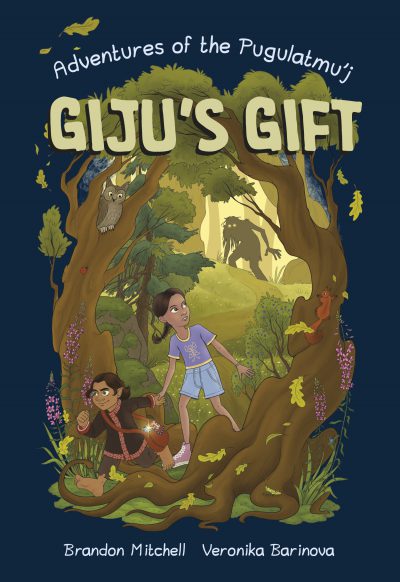
The cover of Giju's Gift. (HighWater Press)
Now in 2022, Brandon has a brand new book out. Called Giju's Gift, it's an early grade graphic novel that tells an adventure of a young Mi'kmaw girl named Mali and her encounter with giants, a haunted past, and mysterious 'Little People' known as the Pugulatmu’j (say boo-ga-la-da-mouge).
What does it all mean? We loved finding out by reading the book, and you will, too! In the mean time, read our interview with Brandon. He dishes on his early days writing, the connections between Giju's Gift and stories he was told growing up in Listuguj, Quebec, and how he and young people work together to inspire each other!
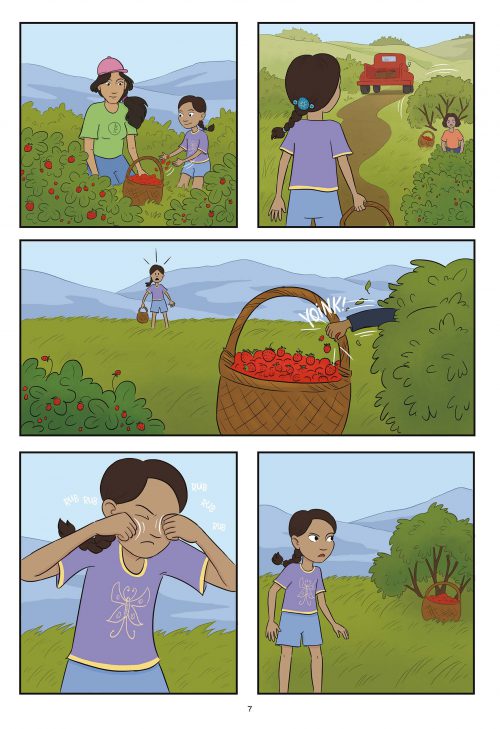
(Excerpted with permission from the book Giju’s Gift by Brandon Mitchell, Illustrated by Veronika Barinova, published by HighWater Press, 2022)
OWLconnected: When did you get into writing? Do you remember first really being curious about words and stories?
Brandon Mitchell: I've always loved drawing. I discovered drawing first and I guess I was always into comic books. I was fascinated by them. I liked how you can tell a story through panels.
Because I always found like writing a story was hard. Growing up, writing paragraphs and structure, for some reason, it just wasn't clicking. But I always had these ideas. I was always doing like these weird little comics, creating my own characters.
It was in high school where my language teacher gave us a writing assignment, and it could be about anything you wanted to write about. I was like, Anything? And she was like, Yep!
I had a blast writing this thing! I even included some character model sheets [these explain details about the characters in the story] and stuff like that. So I submitted it and a week afterwards, she's saying to the class, I was expecting more from from you guys! And then she singles me out and I was like, Oh no!
But she said, This is an example of what I want to see! And I was like, Whoa.
OC: So you nailed it!
BM: She was talking about my story and how strong it was. I left it on a cliffhanger! And then the other students in the class wondered what I wrote, so I shared it with them. They were just like, This is so cool. What are you gonna do next? And I was like, I don't know what I'm gonna do next! (laughs) So I just asked my teacher if I could keep going on with this. And she said yes!
So yeah, it was because of her and that assignment that really got me into creative writing.
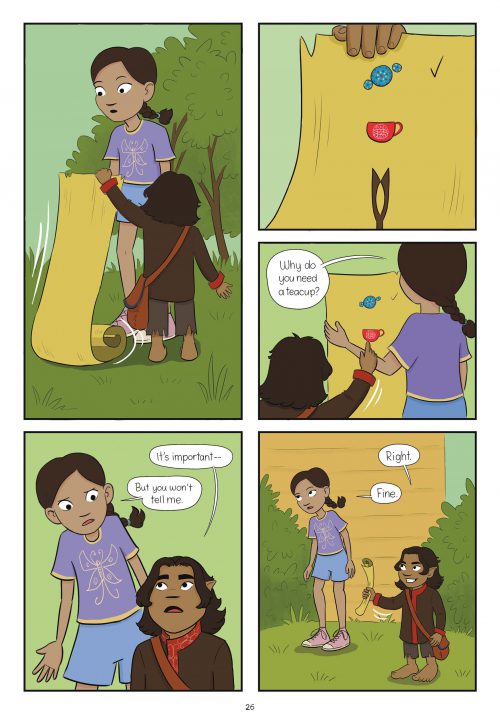
(Excerpted with permission from the book Giju’s Gift by Brandon Mitchell, Illustrated by Veronika Barinova, published by HighWater Press, 2022)
OC: What led to the writing of Giju's Gift?
BM: Geez. I had this idea for a long time. After I graduated college, I was offered a position to teach art and computers in my community. One of the things my mom would always tell me is, Go away for school, but whatever you learn, bring it back [to the community].
It was such a rewarding experience. I was the treat at the school. (laughs) Like, If you're good, we're gonna go see Brandon and draw! I was there to try to make drawing and art accessible to them. I read them one of our [Indigenous] legends, gave them the first two acts [parts of the story], and I stopped. And they're like, Well, what happens next? And I was like, Oh, it's up to you guys. You guys figure it out!
OC: Fun!
BM: But one of them flipped it on me and I wasn't prepared for it. They're just like, Well, what would you do? And I was like, Oh, I don't know! I'd never been questioned by a grade seven student before. But I took it to heart and I came up with what eventually became Sacred Circles, which was a self-published book. That was almost twenty years ago!
OC: So the students pushed you to make that series. That's great!
BM: And twenty years ago, there weren't a lot of Indigenous creators [in comics]. Like, there was three of us at the time and there was no path for this. We were all just kind of blazing our own path as we went along! I took [Sacred Circles] as far as I could go at the time. But I always had this idea that if I ever had a chance to come back to this world or these characters, I was gonna do something focusing on the Pugulatmu’j. It was always kind of in my back pocket.
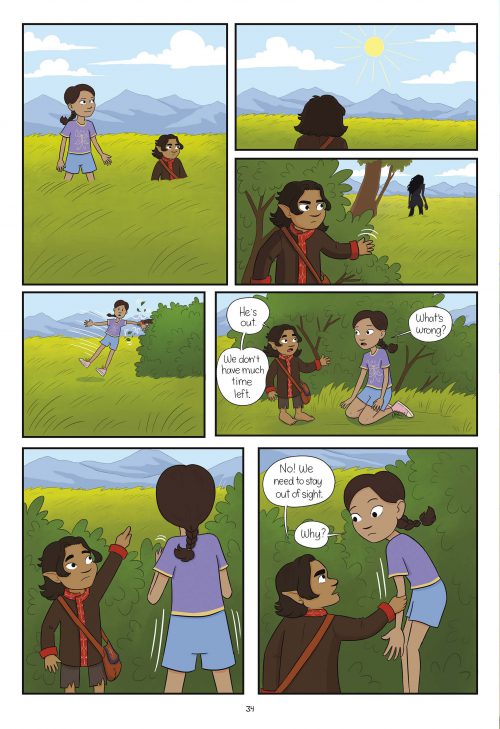
(Excerpted with permission from the book Giju’s Gift by Brandon Mitchell, Illustrated by Veronika Barinova, published by HighWater Press, 2022)
OC: And now the Pugulatmu’j are the star of Giju's Gift! Your heritage is Mi'kmaw. Are the Pugulatmu’j only a part of your nation's heritage, or are they more common?
BM: The Pugulatmu’j is specific to Mi'kmaw. You're not going to hear Pugulatmu’j in Mohawk territory or out west. But you are going to hear stories of 'Little People' throughout Canada. There's different versions of it, right? It's just they'd be just called something different.
But they're always the same tricksters. They like to play little tricks on people, but they're not mean spirited. And the version that I grew up on, they live in the mountains, in a valley, or the deep forest. I remember my mom telling me, Do you see these lines coming down the mountain? That's their sled trails!
The Pugulatmu’j would come sliding down the mountain in their toboggans. And I was like, five years old thinking, Oh my God, this is cool!
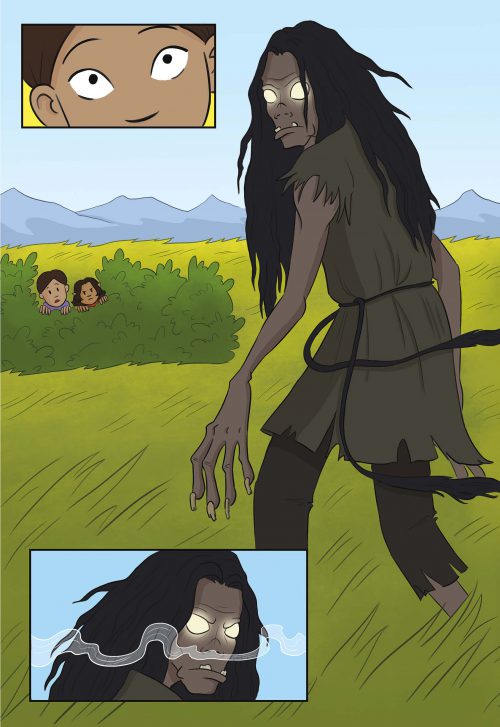
(Excerpted with permission from the book Giju’s Gift by Brandon Mitchell, Illustrated by Veronika Barinova, published by HighWater Press, 2022)
And the other thing was a warning. You have to take care of your stuff, pick up after yourself, because if you lost something—if I couldn't find a toy or whatever—then the Pugulatmu’j took it! (laughs)
So it was one of those little lessons that I grew up with. And as we got older, you know, we'd always joke around like, Where's the keys? Where's my wallet? Where's the remote?
Pugulatmu’j took it!
OC: That's great! Thanks so much for talking with us, Brandon!
BM: My pleasure!
Gifu's Gift is out in bookstores, online retailers, and libraries now through HighWater Press.
To read more with an author from the anthology This Place: 150 Years Retold, check out our interview with David A. Robertson here.
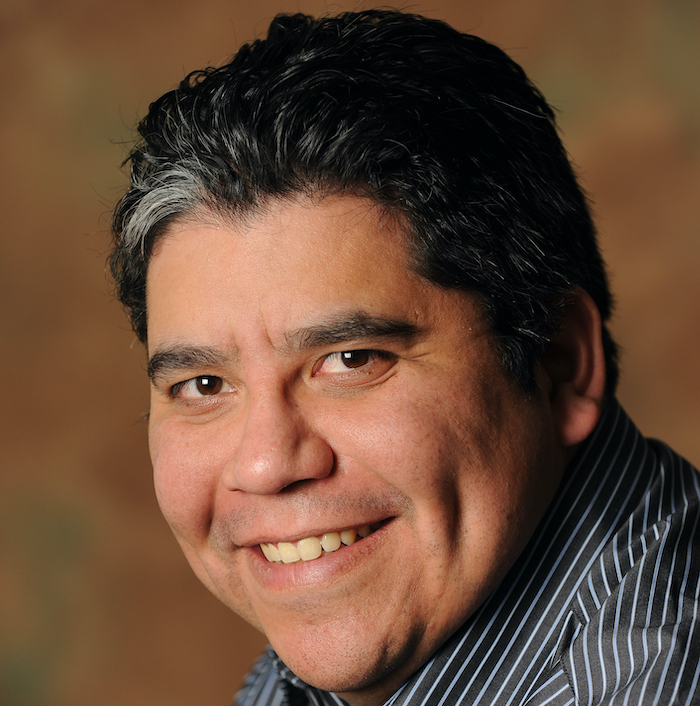 Brandon has accomplished so much is his career already, but his newest book goes right back to stories from his childhood. (Courtesy of HighWater Press)
Brandon has accomplished so much is his career already, but his newest book goes right back to stories from his childhood. (Courtesy of HighWater Press)
